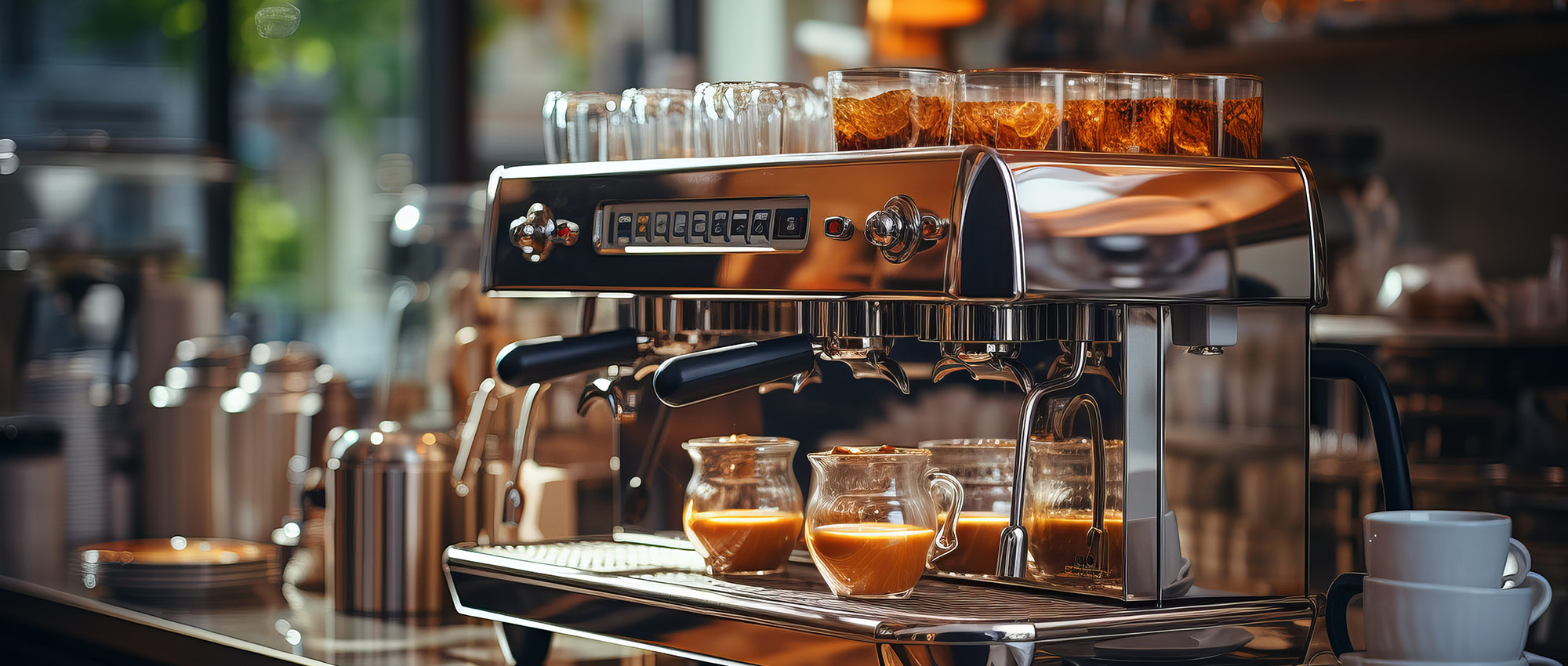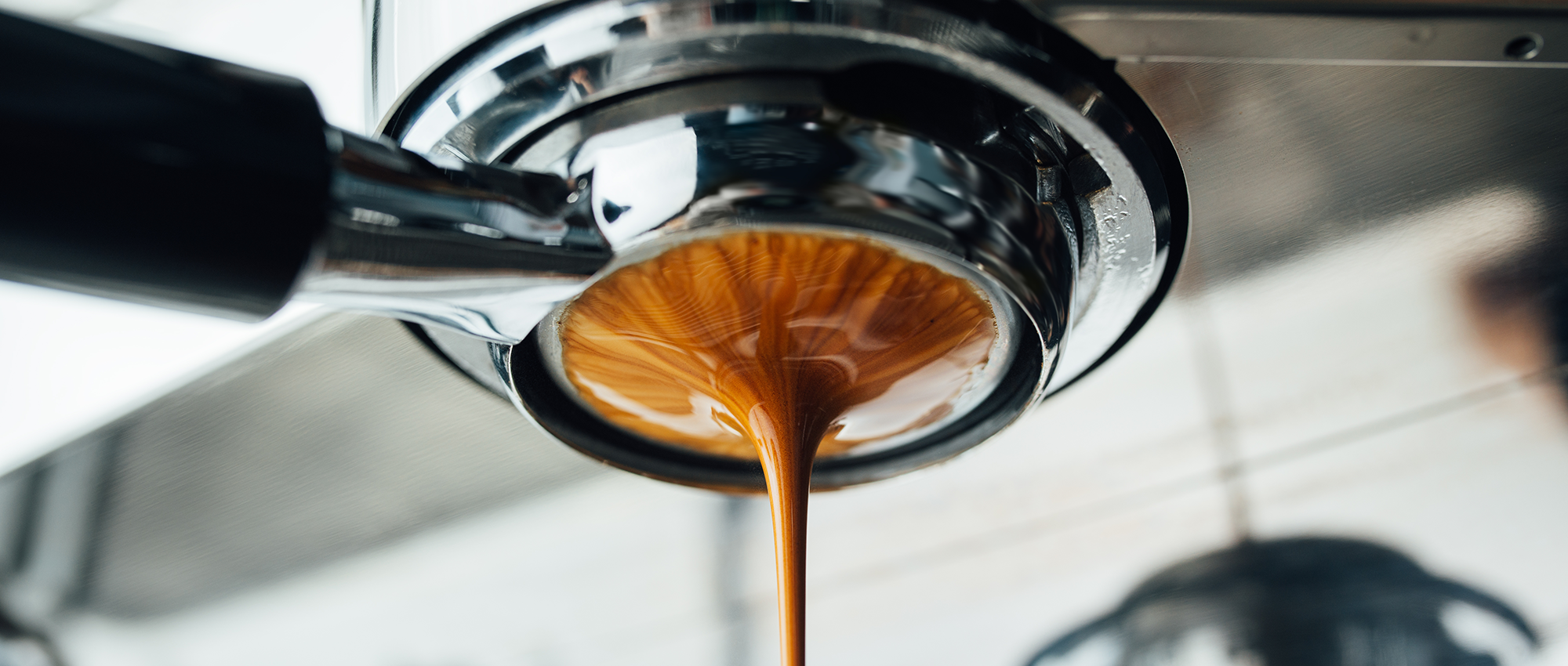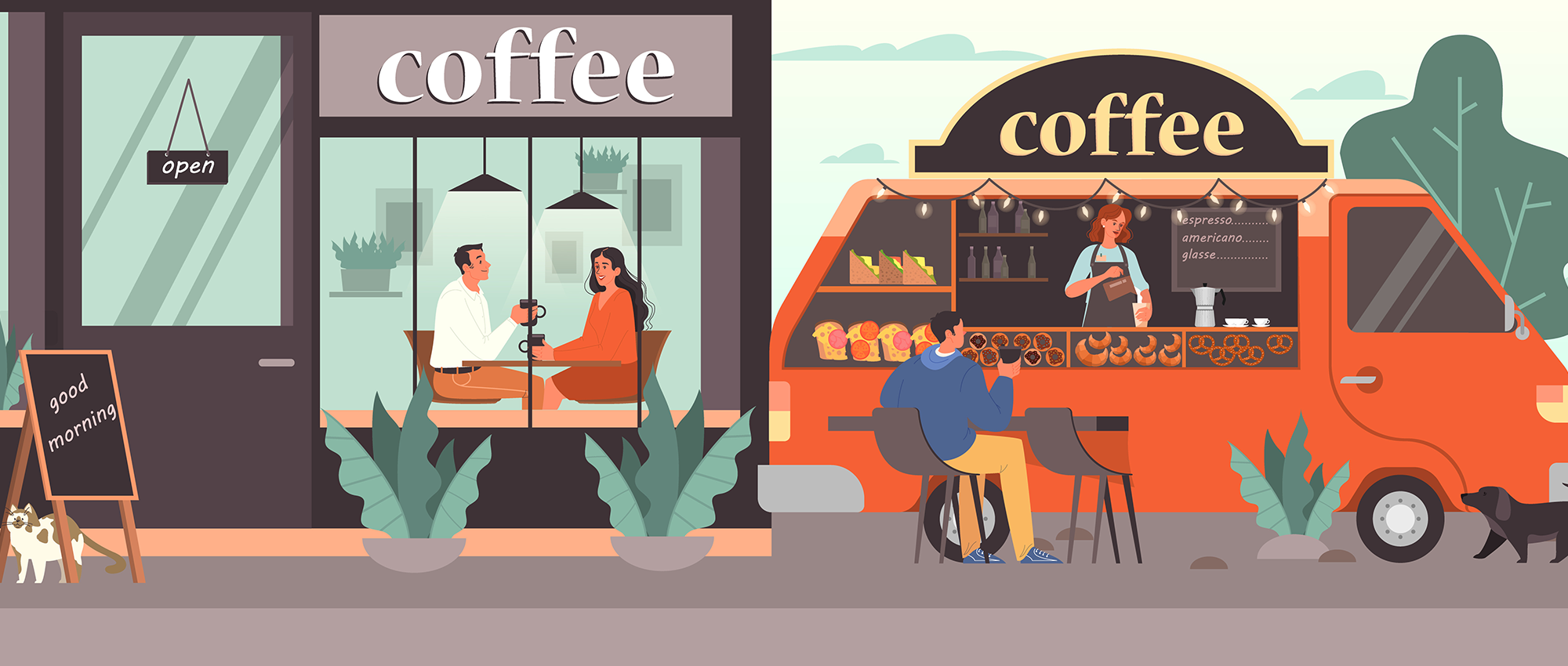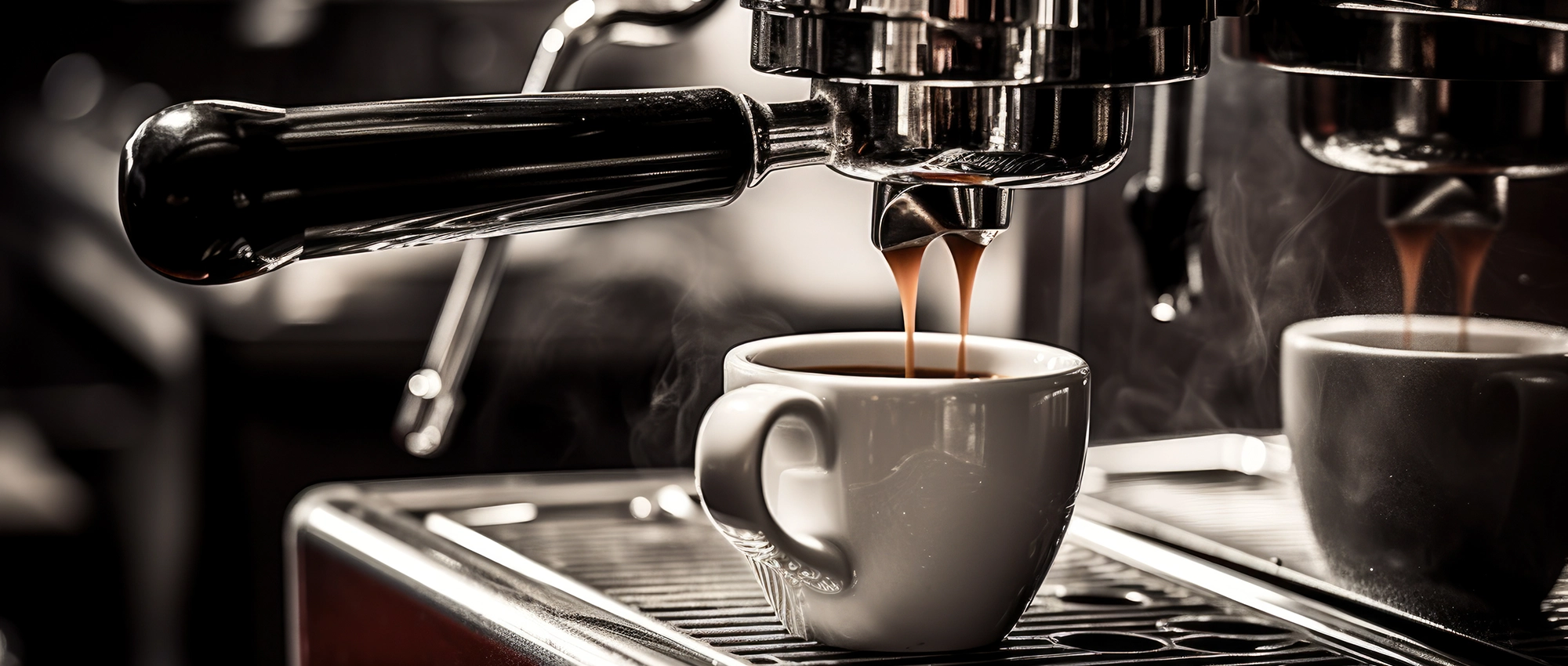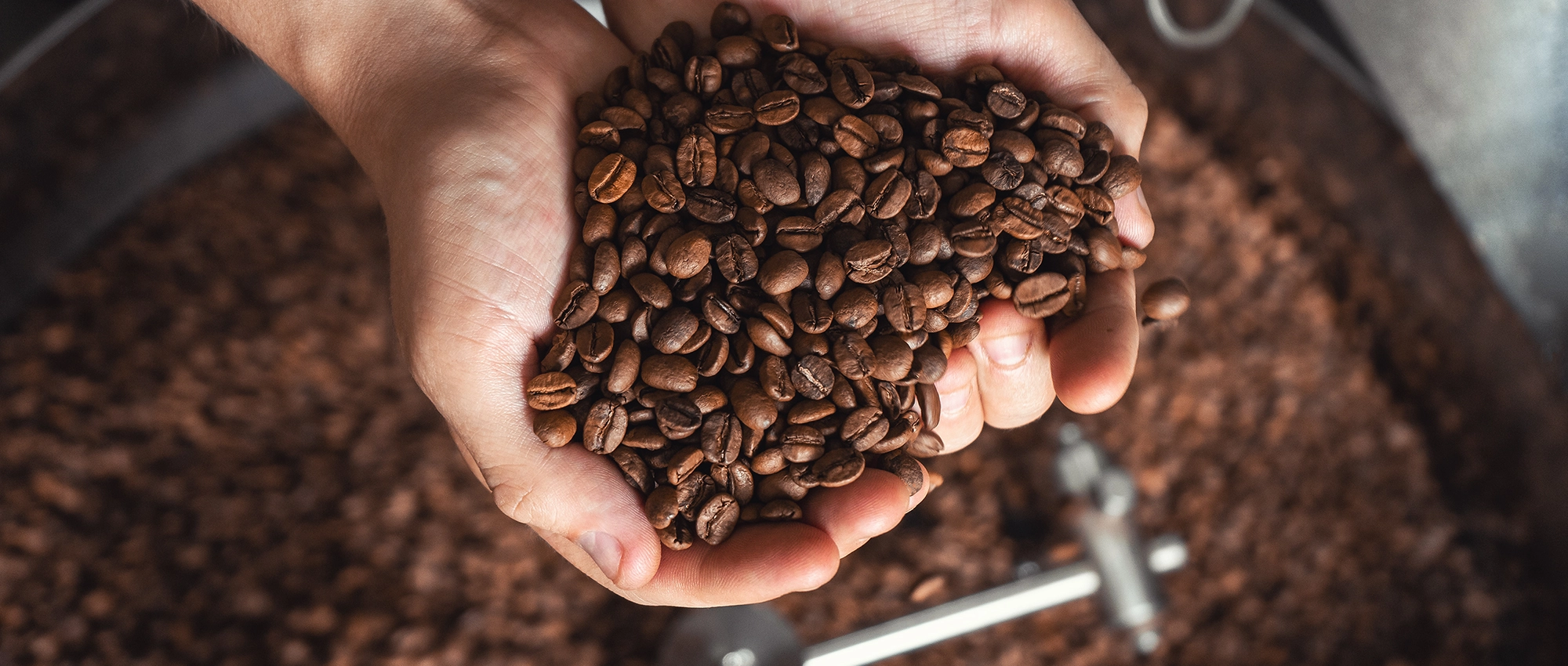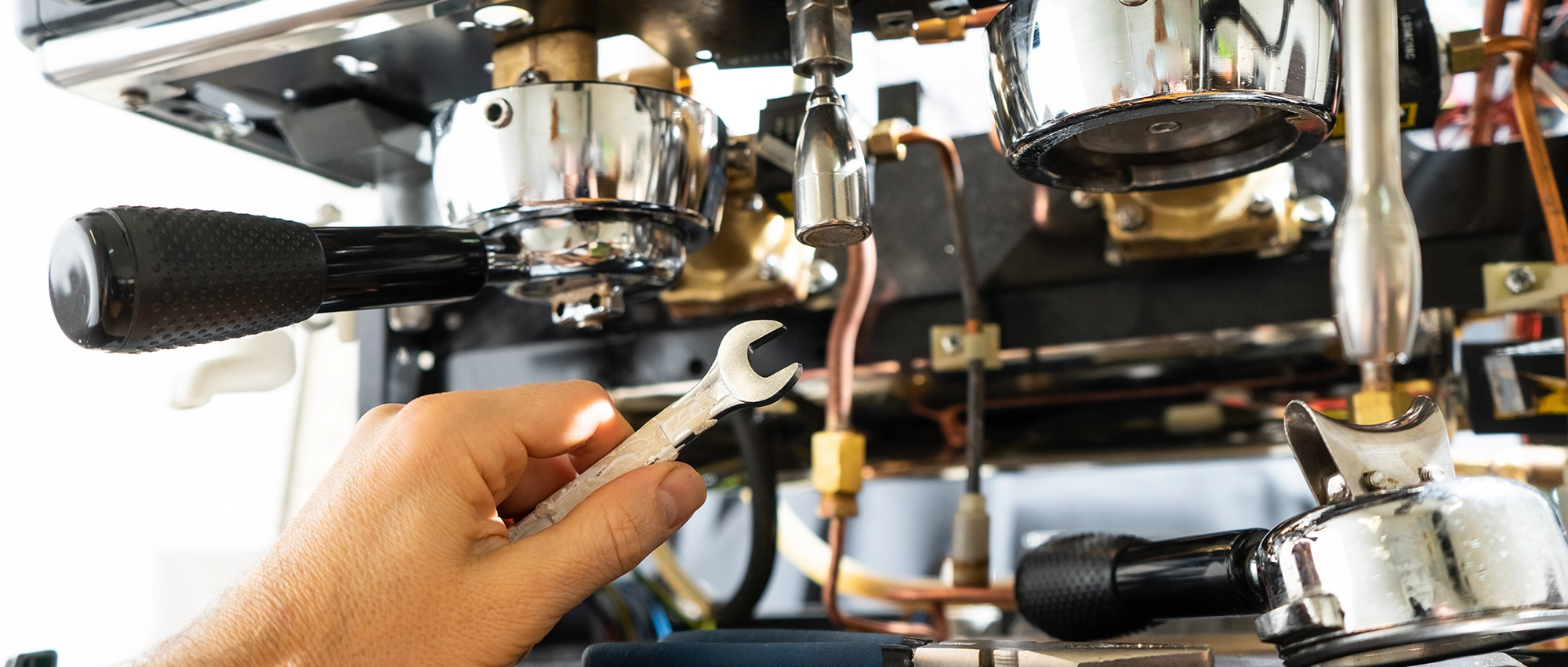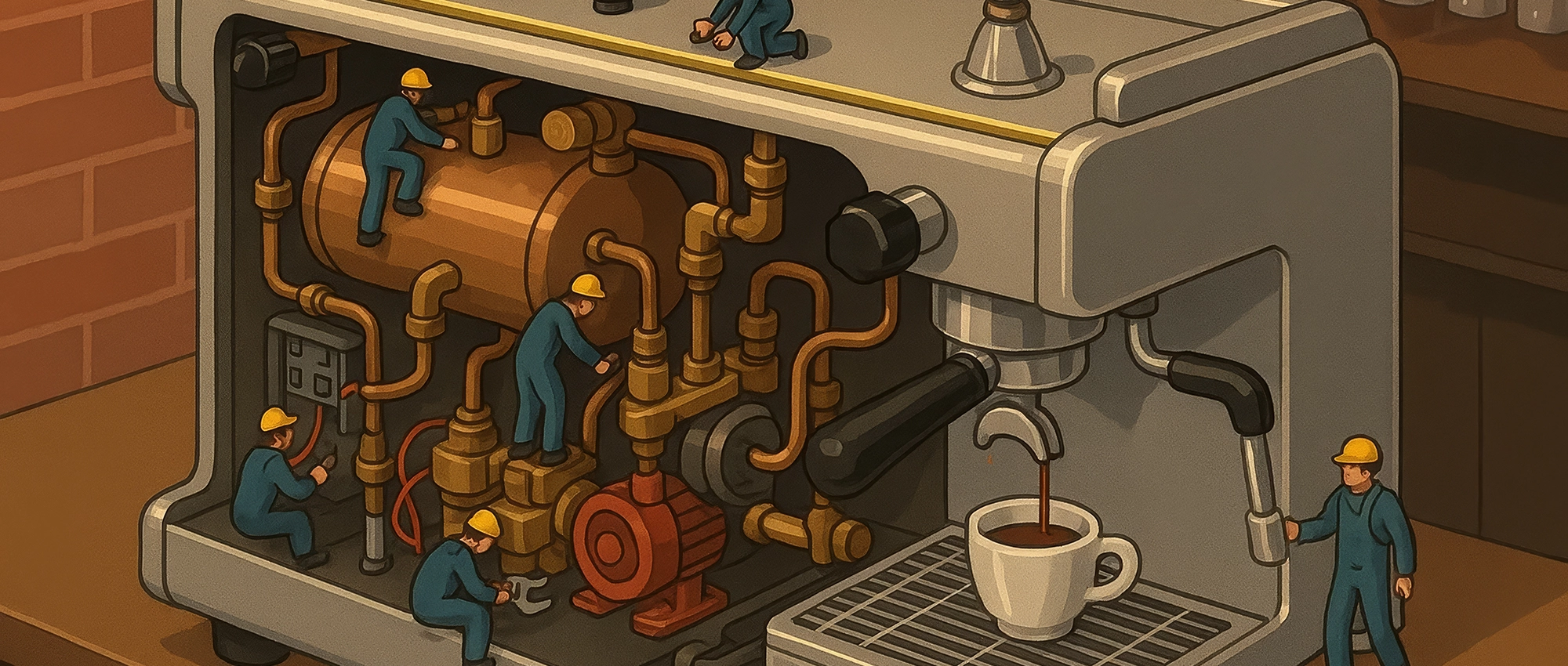Why Coffee Shops Fail: The Top 15 Reasons and How to Avoid Them
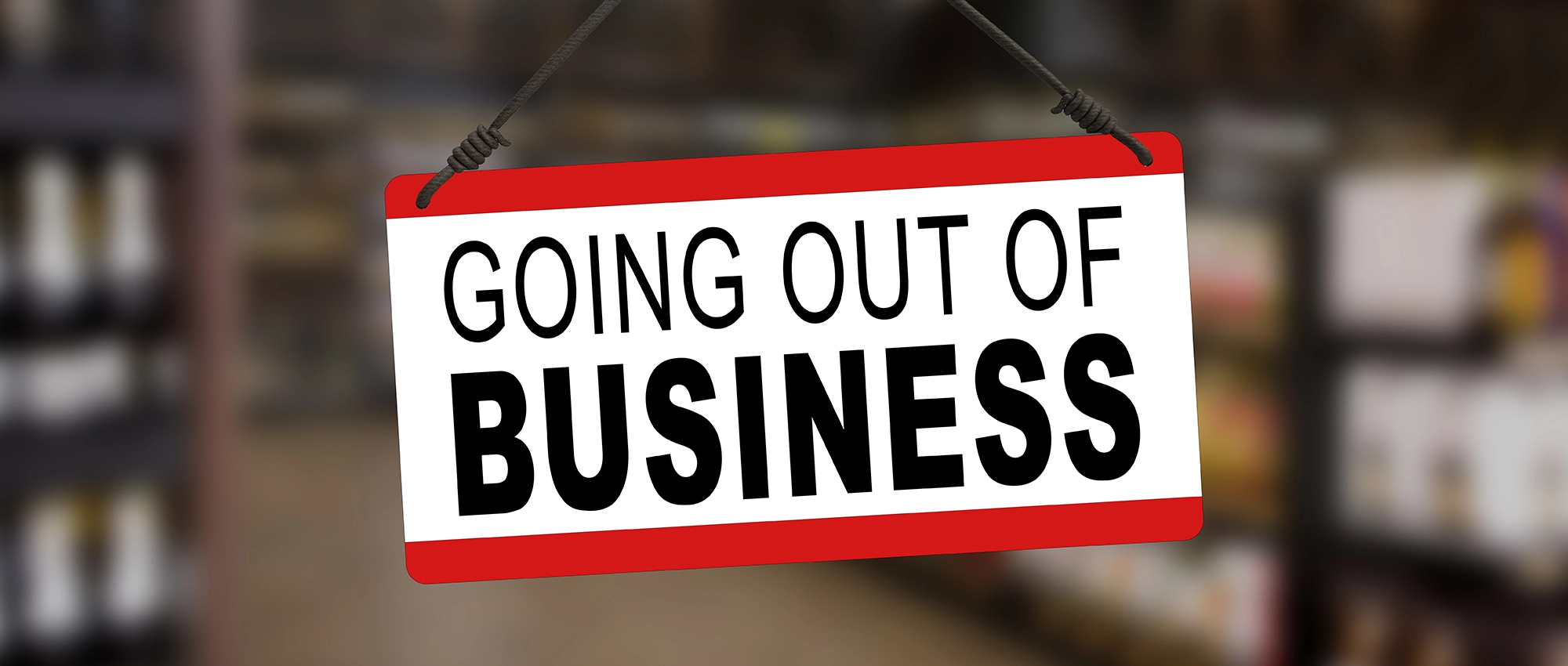
Why Coffee Shops Fail: The Top 15 Reasons and How to Avoid Them
The coffee shop industry represents one of the most appealing business opportunities for entrepreneurs, yet it also carries one of the highest failure rates in the food service sector. Understanding why coffee shops fail is crucial for anyone considering entering this competitive market. According to a comprehensive survey of 232 coffee shop owners, between 50% – 74% of independent coffee shops will fail in the first five years, making it essential to understand the common pitfalls that lead to closure.
Despite the growing coffee culture and increasing demand for specialty beverages, many coffee shop owners find themselves struggling to maintain profitability and sustain their business long-term. The reasons for failure extend far beyond simply serving good coffee, they encompass everything from inadequate planning and poor location choices to financial mismanagement and lack of brand differentiation.
The Stark Reality: Coffee Shop Failure Statistics
The statistics surrounding coffee shop failures paint a sobering picture for prospective business owners. General small business data shows that 20% of small businesses fail in their first year, 30% in their second year, and 50% after five years. Coffee shops, unfortunately, tend to perform even worse than these general statistics suggest.
A survey conducted among coffee shop owners revealed that 56% of respondents agree that more than half of all coffee shops will fail within five years, while only 6.9% believe that 3 in 4 coffee shops will still be operating at the 5-year mark. These numbers underscore the challenging nature of the coffee shop business and the importance of understanding failure factors before investing time and money.
The high failure rate isn’t necessarily due to lack of market demand, nearly 40,000 coffee shops operate in the U.S., with the market continuing to grow. Instead, failures typically result from preventable mistakes that can be avoided with proper planning, education, and strategic thinking.
Top 15 Reasons Why Coffee Shops Fail
1. Being Unprepared for Ownership
The number one reason for coffee shop failure cited by 55% of survey respondents is being unprepared for ownership. Simply put, new coffee business owners don’t know what they’re getting themselves into when starting this business.
Many entrepreneurs enter the coffee shop business with romanticized notions of what ownership entails. They envision themselves as the friendly neighborhood café owner, crafting beautiful lattes and chatting with regulars, but fail to grasp the complexities of running a food service business. The reality involves managing inventory, dealing with health inspectors, handling difficult customers, managing staff schedules, maintaining equipment, and countless other operational challenges.
How to avoid this: Gain hands on experience by working in a coffee shop before opening your own. Attend industry training programs, connect with existing coffee shop owners, and thoroughly research every aspect of the business. Consider hiring experienced industry professionals or consultants to guide you through the initial phases.
2. Lack of Unique Brand or Customer Experience
The second biggest reason for failure was lack of a unique brand or customer experience, cited by 40.51% of survey respondents. In today’s saturated coffee market, simply serving good coffee isn’t enough to differentiate your business from competitors.
Many coffee shop owners make the mistake of assuming that serving good coffee is enough to attract customers. In a crowded market, you need a clear, intentional concept that gives people a reason to choose your shop over others.
How to avoid this: Develop a compelling brand story that resonates with your target audience. Define what makes your coffee shop unique – whether it’s your sourcing practices, community involvement, atmosphere, or specialized offerings. Create memorable experiences that customers can’t get elsewhere, such as personalized service, unique menu items, or distinctive ambiance. Yes you sell coffee but coffee is just part of the experience. In the end you are selling an experience.
3. Poor Location Choice
A poor choice of location is a significant factor in the failure of coffee shops. Inadequate foot traffic, accessibility, lack of visibility and parking, or choosing a location without considering the target market can impact a coffee shop’s success.
Location affects everything from daily customer counts to operating costs. A beautiful coffee shop in a low-traffic area will struggle regardless of product quality, while a mediocre shop in a prime location might thrive. Another common reason for restaurant failure was being situated in the wrong location, with either the wrong demographic to suit their offering or not enough foot-fall.
How to avoid this: Conduct thorough demographic research and traffic studies before signing a lease. Look for locations with high pedestrian traffic, adequate parking, good visibility, and demographics that match your target customer profile. Consider factors like nearby businesses, public transportation access, and future development plans for the area.
4. Inadequate Financial Planning and Cash Flow Management
Sometimes businesses can run out of cash. When they run out of cash, for any number of reasons, their business struggles; think of cash like gas in your car. Underestimating the financial demands of running a coffee shop is another major reason many businesses fail. From purchasing expensive commercial grade equipment to covering monthly rent, utilities, and payroll, costs can quickly spiral out of control.
Many coffee shop owners underestimate startup costs and fail to maintain adequate cash reserves for slow periods or unexpected expenses, especially in the startup phase They may also lack proper financial controls, leading to cost overruns and poor profitability.
How to avoid this: Create detailed financial projections including startup costs, operating expenses, and realistic revenue forecasts. Maintain at least 6-12 months of operating expenses in reserve. Implement robust financial tracking systems and review your numbers regularly. Work with an accountant familiar with food service businesses to ensure proper financial management.
5. Insufficient Market Research and Understanding Target Customers
One of the primary reasons that coffee shops fail is due to the lack of understanding their target market. The market for coffee shops is broad but complex, which requires a thorough analysis to ensure the success of any new coffee shop venture.
Failure to conduct thorough market research can lead to a mismatch between the coffee shop’s offerings and the local community’s preferences. Without understanding who your customers are, what they want, and what they’re willing to pay, you’re essentially operating blind.
How to avoid this: Conduct comprehensive market research before opening. Survey potential customers in your area, analyze competitor offerings and pricing, and understand local preferences and spending patterns. Regularly gather customer feedback after opening and adjust your offerings accordingly.
6. Poor Management and Operational Inefficiencies
“Poor management is a common reason for failure. Just because people are passionate about coffee, it doesn’t mean they will be good at running a business”. Management encompasses everything from staff scheduling and inventory control to customer service standards and equipment maintenance.
Inefficient operations lead to increased costs, poor customer experiences, and staff frustration. Many coffee shop owners lack the business management skills necessary to run a profitable operation.
How to avoid this: Develop strong operational systems and procedures for all aspects of your business. Invest in management training or hire experienced managers. Create detailed standard operating procedures for consistency. Use technology to streamline operations where possible. One of the best books I have ever read on operating and running a small business is a book title The E-Myth by Michael E. Gerber. Whether you’re a first time business owner or a seasoned veteran, this book is a classic.
7. Inadequate Staff Training and High Turnover
Poor staff training results in inconsistent product quality, slow service, and negative customer experiences. High turnover rates increase training costs and disrupt service quality. Many coffee shops fail to invest adequately in staff development and retention.
How to avoid this: Develop comprehensive training programs covering product knowledge, customer service, and operational procedures. Offer competitive wages and benefits to attract quality employees. Create a positive work environment that encourages staff retention. Provide ongoing training and advancement opportunities.
8. Overestimating Sales and Revenue Projections
Overestimating sales is a common mistake that leads to financial difficulties. New coffee shop owners often project overly optimistic sales figures based on hopes rather than realistic market analysis.
How to avoid this: Base revenue projections on thorough market research and conservative estimates. Start with lower projections and plan for gradual growth. Monitor actual performance against projections and adjust accordingly. Have contingency plans for slower-than-expected sales.
9. Failure to Adapt and Evolve
As with any business, running a successful coffee shop requires the willingness to continuously learn and adapt. Consumer trends and preferences are constantly changing and a failure to evolve with them can be devastating for your bottom line.
Sometimes your coffee shop customers can grow right from under you. This is especially true in the face of fierce coffee shop competition. Businesses that fail to innovate and adapt to changing customer preferences often lose market share to more agile competitors.
How to avoid this: Stay informed about industry trends and customer preferences. Regularly review and update your menu, services, and customer experience. Be willing to pivot when necessary. Encourage customer feedback and act on it promptly.
10. Excessive Debt and Over-Leveraging
Having too much debt can cripple a coffee shop’s ability to weather slow periods or invest in necessary improvements. High debt service payments reduce cash flow and limit operational flexibility.
How to avoid this: Minimize debt when possible and maintain conservative debt-to-equity ratios. Carefully evaluate the necessity of any borrowing. Consider leasing or renting equipment instead of purchasing. Maintain strong relationships with lenders and communicate proactively if financial difficulties arise.
11. Inconsistent Product Quality and Service
Consistency and quality are of the utmost importance for any coffee shop that wants to avoid early failure, particularly when it comes to the coffee and customer service. If customers aren’t presented with a high-quality, repeatable experience every time they come in, it’s unlikely they will come back.
How to avoid this: Establish clear quality standards for all products and services. Train staff thoroughly on these standards. Implement quality control procedures and regular monitoring. Address quality issues immediately when they arise.
12. Owner Burnout and Work-Life Balance Issues
The study shows that most restauranteurs work 60 hour weeks and hence the quality of life or lack of-of was a key reason that owners closed restaurants. Coffee shop owner burnout is a significant factor in business failure.
How to avoid this: Plan for sustainable work schedules from the beginning. Hire and train capable staff to reduce your daily operational burden. Take regular breaks and vacations. Consider bringing in partners or managers to share responsibilities.
13. Inadequate Marketing and Customer Acquisition
Many coffee shop owners assume that simply opening their doors will bring customers, but inadequate marketing is a critical factor in business failure. Without effective marketing strategies, even the best coffee shops can struggle to build awareness and attract customers in a competitive market.
Coffee shops that fail to invest in marketing often find themselves with low customer counts, especially during the crucial first few months when building a customer base is essential. Poor marketing also means missing opportunities to communicate your unique value proposition and differentiate from competitors.
How to avoid this: Develop a comprehensive marketing strategy that includes both digital and traditional marketing channels. Utilize social media marketing, local advertising, community events, loyalty programs, and partnerships with local businesses. Invest in professional branding and signage. Track marketing ROI and adjust strategies based on results.
14. Poor Equipment Choices and Maintenance
Inadequate or poorly maintained equipment leads to inconsistent product quality, increased downtime, and higher operating costs. Many coffee shops cut costs on equipment purchases only to face higher long-term expenses.
How to avoid this: Invest in quality commercial equipment appropriate for your volume needs. even high end used equipment. Establish regular maintenance schedules with qualified technicians. Budget for equipment repairs and eventual replacements. Choose equipment brands with good local service support.
14. Ignoring Digital Marketing and Online Presence
In today’s digital age, coffee shops that fail to establish strong online presence and utilize digital marketing often struggle to attract and retain customers, especially younger demographics. Many coffee shop failures can be attributed to poor or non-existent digital marketing strategies.
Social media has become crucial for coffee shops to showcase their products, engage with customers, and build community. Coffee shops without active social media presence miss opportunities to attract new customers and maintain relationships with existing ones.
How to avoid this: Develop a professional website and maintain active social media presence across relevant platforms. Implement customer loyalty programs. Engage with customers through digital channels and respond to online reviews promptly. Post high-quality photos of your products and create engaging content that builds community.
15. Insufficient Understanding of Local Regulations and Compliance
Failure to comply with health codes, licensing requirements, labor laws, and other regulations can result in fines, closure orders, or legal issues that devastate small businesses.
How to avoid this: Research all applicable regulations before opening. Work with local authorities to ensure compliance. Maintain proper licenses and permits. Stay informed about regulatory changes that affect your business.
The Critical Role of Marketing in Coffee Shop Success
Marketing plays a fundamental role in coffee shop success, yet it’s often overlooked or underfunded by new business owners. Effective marketing does more than just advertise your products, it builds brand awareness, communicates your unique value proposition, and creates emotional connections with customers that drive repeat business.
Many coffee shop owners mistakenly believe that quality products alone will guarantee success. While excellent coffee is essential, without effective marketing to communicate that quality to potential customers, even the best coffee shops can fail. Marketing helps you:
Build Initial Awareness: New coffee shops need marketing to let the community know they exist and what they offer.
Differentiate from Competitors: Effective marketing communicates what makes your coffee shop unique in a crowded marketplace.
Drive Customer Acquisition: Marketing campaigns bring new customers through your doors and introduce them to your brand.
Encourage Repeat Business: Ongoing marketing efforts keep your coffee shop top of mind and encourage customers to return.
Build Community: Marketing helps establish your coffee shop as a community gathering place, not just a business.
Coffee shops that fail often lack cohesive marketing strategies, inconsistent branding, or insufficient marketing budgets. They may rely solely on word of mouth marketing, which, while valuable, is insufficient for building a sustainable customer base in today’s competitive environment.
Failing to plan is among the top reasons for coffee shops failure rates. Therefore, writing a comprehensive coffee shop business plan is one of the best ways to avoid failure. A well-crafted business plan serves as a roadmap for success and helps identify potential problems before they become critical.
A comprehensive business plan should include:
- Market analysis and competitive landscape
- Financial projections and funding requirements
- Marketing and operational strategies
- Risk assessment and mitigation plans
- Growth and expansion strategies
The Importance of Business Planning
While failure rates are high, many coffee shops do succeed and thrive. Successful coffee shops typically share common characteristics:
- Strong brand identity and customer loyalty
- Excellent location and market fit
- Consistent quality and service standards
- Sound financial management
- Adaptability to market changes
- Community involvement and engagement
Learning from Success Stories
A thorough preparation could require six months to a year of research and planning, but it is important to realize that this investment of time will pay off in the end. Many successful coffee shop owners invest heavily in education before opening their doors.
Industry resources include:
- Coffee business training programs
- Trade associations and networking groups
- Industry consultants and mentors
- Equipment supplier education programs
- Online courses and certification programs
Strategies for Long-Term Success
To build a sustainable coffee shop business:
Focus on Customer Experience: Create memorable experiences that encourage repeat visits and word of mouth marketing.
Build Community Connections: Become an integral part of your local community through events, partnerships, and social responsibility initiatives.
Maintain Financial Discipline: Monitor key metrics regularly and make data-driven decisions about pricing, costs, and investments.
Invest in Your Team: Treat employees well and invest in their development to reduce turnover and improve service quality.
Stay Current with Trends: Keep up with industry trends while staying true to your brand identity and customer base.
Conclusion
While coffee shop failure rates are indeed high, understanding the common reasons for failure provides a roadmap for avoiding these pitfalls. Failure certainly isn’t inevitable! Many coffee shops not only survive, but grow steadily year after year by identifying their niche, offering quality products, and adapting to customer needs.
Success in the coffee shop industry requires more than passion for coffee, it demands business acumen, careful planning, adequate funding, and the ability to adapt to changing market conditions. By understanding why coffee shops fail and taking proactive steps to address these challenges, aspiring coffee shop owners can significantly improve their chances of building a successful, sustainable business.
The key is approaching coffee shop ownership as a serious business venture that requires the same level of planning, preparation, and professional management as any other business. With proper preparation, realistic expectations, and commitment to excellence, your coffee shop can become part of the successful minority that thrives in this competitive but rewarding industry.
Gary Downey
Gary Downey
Tags :
Coffee U Sunday: Weekly Coffee Business Education
Get expert coffee insights delivered to your inbox every Sunday. Equipment guides, brewing tips, business strategies, and industry trends to help your business succeed.
Categories
Categories
- Coffee Brewers (7)
- Coffee Business Success (6)
- Coffee Grinders (7)
- Coffee Shop Owners (7)
- Coffee Technology (3)
- Cold Brew Coffee (2)
- Espresso Machines (5)
- La Marzocco (1)
- Maintenance & Service (3)
- Specialty Coffee Drinks (3)
- Water Treatment (1)
📚 Equipment Guides
Comprehensive breakdowns of different machine types, helping you make informed purchasing decisions
 Maintenance Tips
Maintenance Tips
Professional techniques to keep your equipment running at peak performance and extend its lifespan
 Brewing Science
Brewing Science
Understand the ‘why’ behind extraction, temperature stability, and equipment design
 Troubleshooting Help
Troubleshooting Help
Common problems and solutions to minimize downtime and service calls
 Business Insights
Business Insights
ROI calculations, workflow optimization, and equipment selection for your specific needs
 Technology Explained
Technology Explained
Demystifying features like PID control, pressure profiling, and heat exchange systems
Coffee U Sunday: Weekly Coffee Business Education
Get expert coffee insights delivered to your inbox every Sunday. Equipment guides, brewing tips, business strategies, and industry trends to help your business succeed.
Share
Use our search function or browse by category to find exactly what you need. Can’t find an answer? Contact us directly, your question might inspire our next Coffee U article! As we grow, so will this resource, shaped by the real needs of coffee professionals like you.
Start exploring Coffee U today and discover why Bean & Brew Technologies is committed to elevating the coffee industry through education and exceptional service.
Have a question?
We're here to help.


